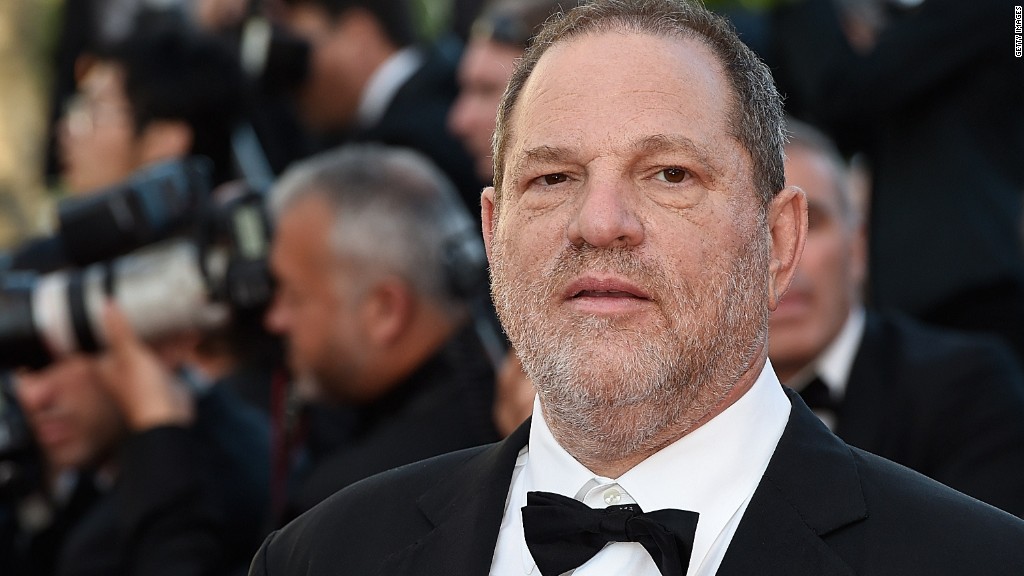
Screenwriter Scott Rosenberg, who enjoyed the spoils of being part of Harvey Weinstein's inner circle during what he called "the Golden Age" of Miramax, has apologized for turning a blind eye to Weinstein's behavior towards women, though he admits it was something of an open secret.
"Let's be perfectly clear about one thing: Everybody-fucking-knew," Rosenberg wrote in a Facebook post on Sunday evening, which has now been made private but was verified by CNN. "We knew about the man's hunger; his fervor; his appetite. There was nothing secret about this voracious rapacity; like a gluttonous ogre out of the Brothers Grimm. All couched in vague promises of potential movie roles."
An investigation by The New York Times earlier this month detailed a decades-long pattern of alleged harassment by Weinstein, with more accusations having emerged since the story's publication.
Weinstein acknowledged in a statement after the first set of allegations that he had behaved inappropriately in the past and apologized, vowing to seek treatment.
Related: Highs and lows of Harvey Weinstein's career
A piece by the New Yorker later included three allegations of rape. Weinstein's representative said in a statement: "Any allegations of non-consensual sex are unequivocally denied by Mr. Weinstein."
Rosenberg, who worked closely with the Miramax studio and brothers Bob and Harvey Weinstein, claims rape was never part of the rumored behavior to which he or others were privy, but said in his post: "we were aware of a certain pattern of overly-aggressive behavior that was rather dreadful."
He also called out those who were also around at the time, which he estimated to be from 1994 to the early 2000s. He claims several big-name producers, directors, agents, financiers, rival studio chiefs, actors, journalists, screenwriters and politicians were all aware of Weinstein's "odious" behavior.
"Again, maybe we didn't know the degree. The magnitude of the awfulness....but we knew something," he wrote.
Then barely 30, Rosenberg's first two films, "Beautiful Girls" and "Things to Do in Denver When You're Dead," were produced by Miramax, which was co-founded by Bob and Harvey Weinstein. They also signed Rosenberg to an overall deal at the time, he wrote.
Related: Harvey Weinstein off Weinstein Company board of directors
"They anointed me. Made it so other studios thought I was the real deal. They gave me my career," he said.
That career came with perks, like nights out on the town, lavish vacations and tickets to in-demand events, from Broadway shows to the Super Bowl.
"It was glorious. All of it. So what if he was coming on a little strong to some young models who had moved mountains to get into one of his parties?" Rosenberg wrote. "So what if he was exposing himself, in five-star hotel rooms, like a cartoon flasher out of 'MAD MAGAZINE' (just swap robe for raincoat!) Who were we to call foul? Golden Geese don't come along too often in one's life."
He added: "We were willing to overlook what the Golden Goose was up to, in the murky shadows behind the barn..."
Rosenberg, who went on to write "Gone in Sixty Seconds" among other movies, said he's remorseful now, having learned the possible scope of Weinstein's rumored behavior.
"To all of the women that had to suffer this...I am eternally sorry," he wrote.
Of those who have spoken out, Rosenberg wrote, "Their courage only hangs a lantern on my shame."
He called on those who "witnessed it from the sidelines" to also share their tales "instead of retreating to the cowardly, canopied confines of faux-outrage."
"Doesn't being a bystander bring with it the responsibility of telling the truth, however personally disgraceful it may be?" he wrote. "You know who are. You know that you knew. And do you know how I know that you knew? Because I was there with you."
On Tuesday, Weinstein was officially removed from the board of directors at The Weinstein Company, which he and his brother founded in 2005.
He had been fired from the company days after the release of the New York Times story.


